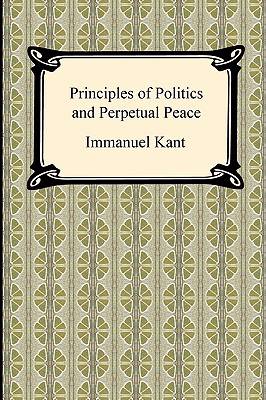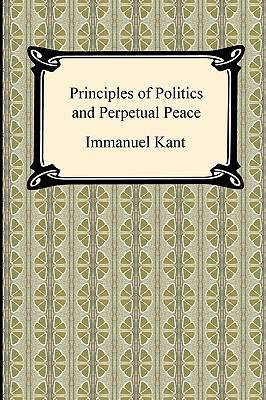
- Afhalen na 1 uur in een winkel met voorraad
- Gratis thuislevering in België vanaf € 30
- Ruim aanbod met 7 miljoen producten
- Afhalen na 1 uur in een winkel met voorraad
- Gratis thuislevering in België vanaf € 30
- Ruim aanbod met 7 miljoen producten
Zoeken
€ 11,45
+ 22 punten
Omschrijving
Immanuel Kant (1724-1804) was considered to be one of the most important and influential figures in Western philosophy for his work in the areas of metaphysics, anthropology, theoretical physics, logic, and moral philosophy. Remarkably, Kant never left the town of Königsberg, Germany, where he had been born, received schooling, and served as lecturer at the University. Despite his provinciality, Kant developed original and comprehensive ideas in the field of politics, including his opposition to democracy, the establishment of lasting world peace, and the development of a political community of constitutional republics, all grounded on the principle of Right. This work contains Kant's "Idea of a Universal Cosmopolitical History, Principles of Political Right, The Principle of Progress," and his most famous essay, "Perpetual Peace," the formal exposition of Kant's political idea in which he proposed the creation of a International Federation as a means to secure 'the sweet dream of peace'.
Specificaties
Betrokkenen
- Auteur(s):
- Uitgeverij:
Inhoud
- Aantal bladzijden:
- 80
- Taal:
- Engels
Eigenschappen
- Productcode (EAN):
- 9781420938258
- Verschijningsdatum:
- 1/01/2010
- Uitvoering:
- Paperback
- Formaat:
- Trade paperback (VS)
- Afmetingen:
- 152 mm x 229 mm
- Gewicht:
- 127 g

Alleen bij Standaard Boekhandel
+ 22 punten op je klantenkaart van Standaard Boekhandel
Beoordelingen
We publiceren alleen reviews die voldoen aan de voorwaarden voor reviews. Bekijk onze voorwaarden voor reviews.











